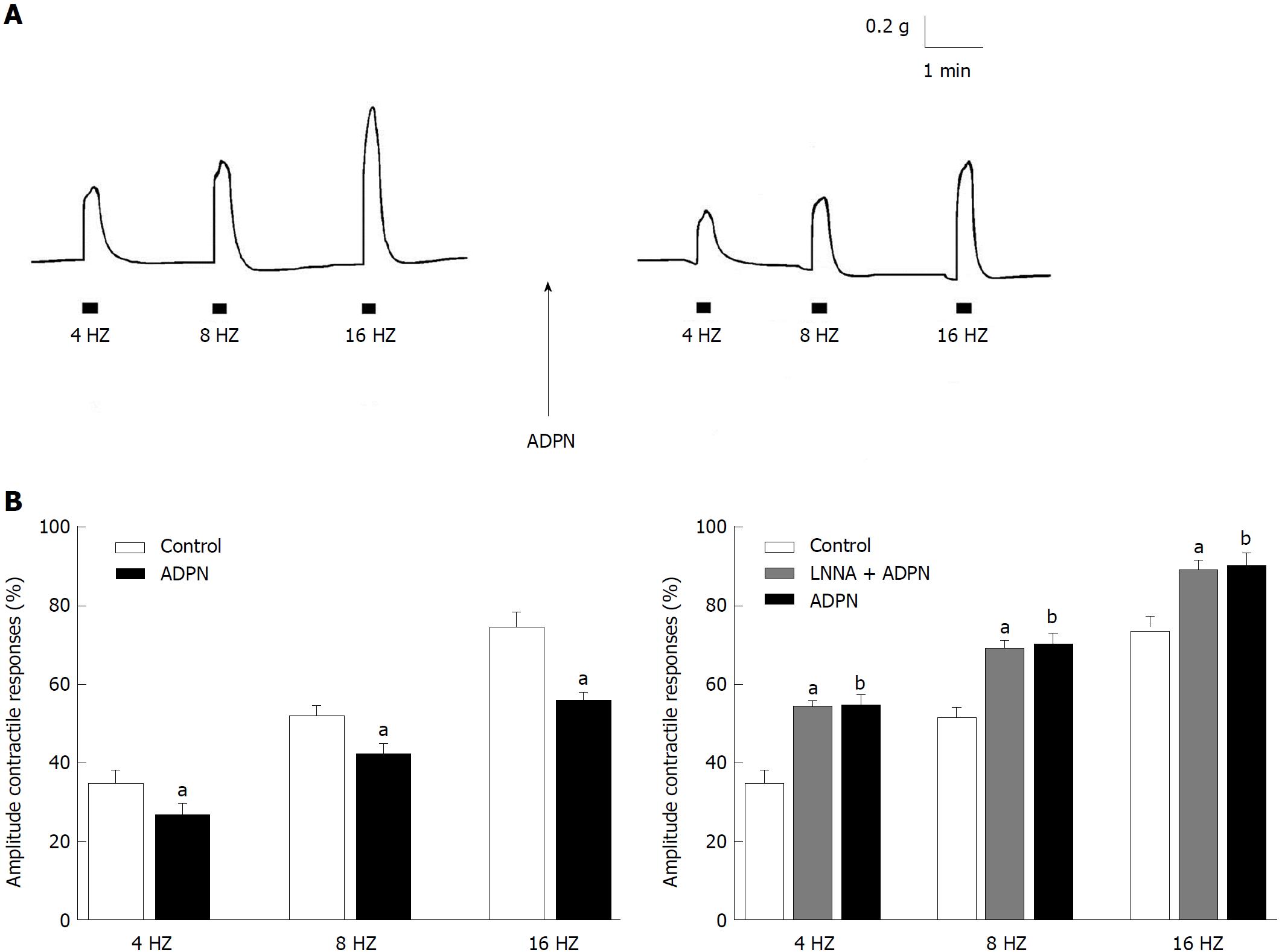Copyright
©The Author(s) 2018.
World J Gastroenterol. Sep 21, 2018; 24(35): 4028-4035
Published online Sep 21, 2018. doi: 10.3748/wjg.v24.i35.4028
Published online Sep 21, 2018. doi: 10.3748/wjg.v24.i35.4028
Figure 1 Effects of adiponectin on the neurally-induced contractile responses in strips from the mouse gastric fundus.
A: Typical tracing showing the contractile responses to EFS (left hand panel). ADPN (20 nmol/L) decreases the amplitude of the neurally-induced contractile responses (right hand panel); B: Bar charts showing the influence of ADPN (20 nmol/L) on the mean amplitude of the EFS-induced contractile responses in the absence (left hand panel) and in the presence (right hand panel) of L-NNA (200 μmol/L). Note that, in the presence of L-NNA, ADPN no longer decreases the amplitude of the neurally-induced excitatory responses in the whole range of stimulation frequency employed. Amplitude of contractile responses is expressed as percentage of the muscular contraction evoked by 2 μmol/L methacholine, assumed as 100%. All values are means ± SE of 6 strips from 3 mice. aP < 0.05 vs the control; bP < 0.05 and P > 0.05 vs the control and vs L-NNA, respectively (Student's t-test plus ANOVA and Newman-Keuls post-test). ADPN: Adiponectin; L-NNA: L-NG-nitro arginine.
- Citation: Idrizaj E, Garella R, Castellini G, Mohr H, Pellegata NS, Francini F, Ricca V, Squecco R, Baccari MC. Adiponectin affects the mechanical responses in strips from the mouse gastric fundus. World J Gastroenterol 2018; 24(35): 4028-4035
- URL: https://www.wjgnet.com/1007-9327/full/v24/i35/4028.htm
- DOI: https://dx.doi.org/10.3748/wjg.v24.i35.4028









